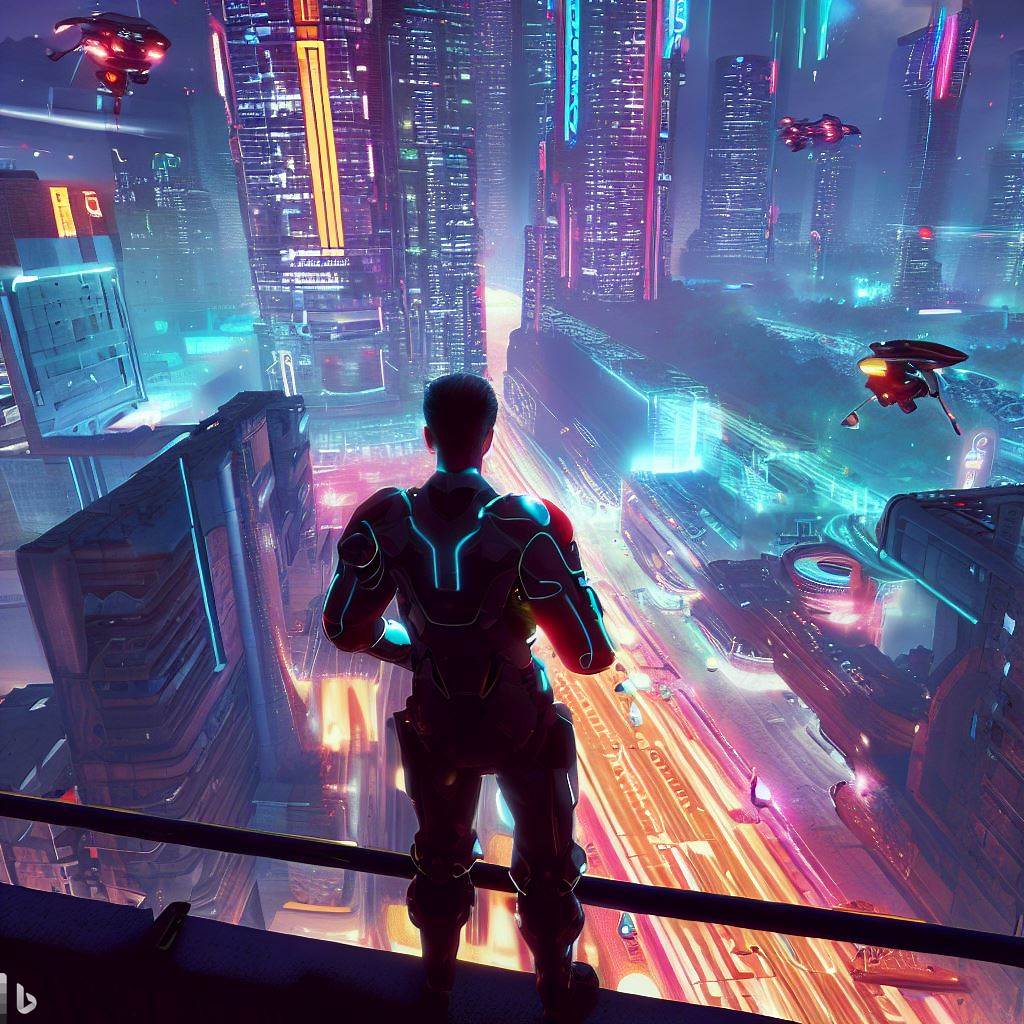
Science fiction has always been a fertile ground for exploring the most profound questions about humanity, technology, and the nature of existence. By pushing the boundaries of our imagination, these books challenge our preconceptions and stimulate our intellect. In this article, we will delve into the most thought-provoking science fiction books of all time, discussing their themes, significance, and the impact they have had on readers and society as a whole.
1. 1984 by George Orwell
*Published in 1949, this dystopian novel paints a chilling portrait of a totalitarian society, where individual freedoms are suppressed, and surveillance is omnipresent. With its stark depiction of a world ruled by an oppressive government, 1984 serves as a cautionary tale about the dangers of unchecked power and the erosion of privacy.
2. Brave New World by Aldous Huxley
*Brave New World envisions a future where human beings are mass-produced and conditioned to accept a rigid social hierarchy. Through the story of an outsider in this society, Huxley raises questions about the price of stability and the cost of sacrificing individuality for the greater good.
3. Fahrenheit 451 by Ray Bradbury
*This classic novel explores a future where books are banned, and “firemen” are tasked with burning them to suppress dissenting ideas. Fahrenheit 451 serves as a powerful reminder of the importance of free thought and the dangers of censorship.
4. Dune by Frank Herbert
*Set in a distant future, Dune chronicles the struggle for control over a desert planet rich in a valuable resource called “spice.” The novel’s intricate world-building and exploration of political, ecological, and social themes have made it a cornerstone of science fiction literature.
5. Neuromancer by William Gibson
*Neuromancer is the seminal cyberpunk novel that envisions a world dominated by virtual reality and artificial intelligence. By examining the implications of a society where humans and technology are increasingly intertwined, Gibson forces us to confront the ethical dilemmas and potential pitfalls of our digital future.
6. The Left Hand of Darkness by Ursula K. Le Guin
*This groundbreaking novel explores gender, sexuality, and identity through the story of an ambassador from Earth to a planet inhabited by a species with no fixed gender. Le Guin’s masterful storytelling and exploration of complex themes have made The Left Hand of Darkness a science fiction classic.
7. The Road by Cormac McCarthy
*The Road presents a harrowing vision of a post-apocalyptic world, where a father and son struggle to survive in a desolate, ruined landscape. McCarthy’s spare prose and haunting imagery make this novel a powerful meditation on the nature of hope and the bonds that hold us together in the face of adversity.
8. Snow Crash by Neal Stephenson
*Snow Crash explores the convergence of the digital and physical worlds through the adventures of a hacker and his allies. With its vivid depiction of virtual reality and its examination of the implications of a hyper-connected society, Snow Crash remains a thought-provoking and influential work of science fiction.
9. The Handmaid’s Tale by Margaret Atwood
*In this dystopian novel, women are subjugated, and their rights are severely restricted. The Handmaid’s Tale serves as a chilling warning about the consequences of extreme patriarchal control and the necessity of fighting for freedom and equality.
10. The Three-Body Problem by Liu Cixin
*This hard science fiction novel explores the consequences of humanity’s first contact with an alien civilization. The Three-Body Problem raises questions about the nature of human progress, the ethics of communication with extraterrestrial life, and the potential risks of such encounters. With its intricate plot and exploration of complex scientific concepts, The Three-Body Problem has captivated readers and sparked thought-provoking discussions.
11. The Dispossessed by Ursula K. Le Guin
*This novel presents a compelling examination of political ideologies through the story of a physicist from an anarchist society who travels to a capitalist world. The Dispossessed raises questions about the nature of freedom, the challenges of implementing utopian ideals, and the impact of societal structures on individual lives.
12. Do Androids Dream of Electric Sheep? by Philip K. Dick
*In a future where androids are nearly indistinguishable from humans, a bounty hunter must track down and “retire” rogue androids. This novel explores themes of empathy, the nature of consciousness, and what it means to be truly human.
13. A Canticle for Leibowitz by Walter M. Miller Jr.
*Set in a post-apocalyptic world, this novel follows a group of monks dedicated to preserving knowledge from the pre-apocalyptic civilization. A Canticle for Leibowitz grapples with the cyclical nature of history, the role of religion in society, and the potential for humanity to learn from its mistakes.
14. Ender’s Game by Orson Scott Card
*This novel follows a young prodigy trained to lead humanity’s military forces against an alien threat. Ender’s Game raises ethical questions about the use of child soldiers, the nature of warfare, and the morality of preemptive strikes.
15. The Martian Chronicles by Ray Bradbury
*Comprising a series of interconnected stories, The Martian Chronicles chronicles the colonization of Mars by humans fleeing a troubled Earth. This collection explores themes of colonialism, the impact of human presence on alien ecosystems, and the search for a new beginning.
The most thought-provoking science fiction books of all time challenge us to confront our deepest beliefs and consider the ethical, social, and philosophical implications of our rapidly advancing technology. By immersing ourselves in these imaginative worlds, we can better understand our own and envision a future that is both exciting and cautionary. These novels, with their gripping narratives and complex themes, not only entertain but also provoke reflection and discussion, ensuring their continued relevance and influence on readers for generations to come.